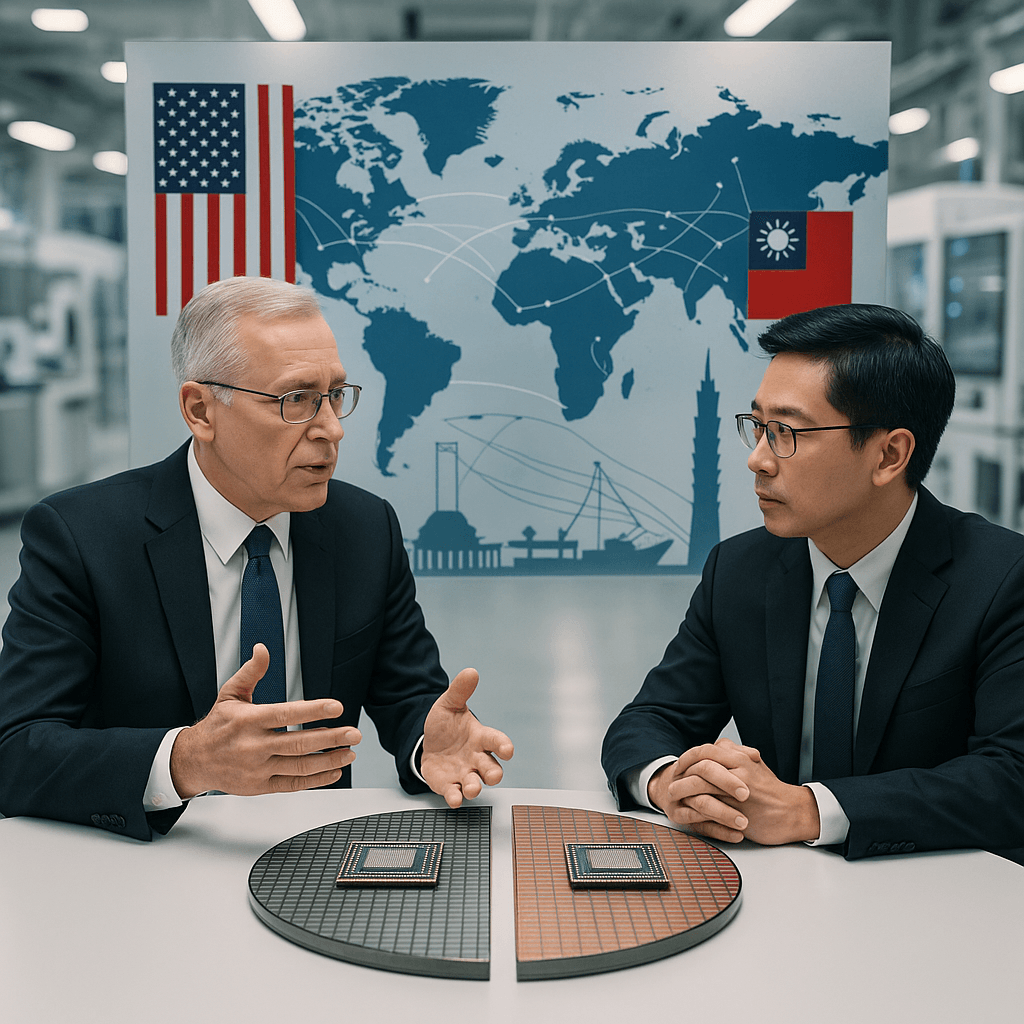Commerce Secretary Howard Lutnick is pushing Taiwan to restructure global semiconductor production, proposing a 50-50 split that would see America manufacture half its own chips domestically. The plan would require over $500 billion in U.S. investments and fundamentally reshape the industry that Taiwan currently dominates with over 90% of advanced chip production.
The Trump administration just dropped a bombshell on the global chip industry. Commerce Secretary Howard Lutnick wants Taiwan to fundamentally restructure semiconductor production, proposing an ambitious 50-50 split that would see America manufacturing half its own chips by the end of Trump's term.
"My objective, and this administration's objective, is to get chip manufacturing significantly onshored - we need to make our own chips," Lutnick told NewsNation over the weekend. "The idea that I pitched [Taiwan] was, let's get to 50-50. We're producing half, and you're producing half."
The proposal strikes at the heart of Taiwan's semiconductor dominance. The island currently produces over 90% of the world's advanced semiconductors, with Taiwan Semiconductor Manufacturing Co. (TSMC) serving as the exclusive manufacturer for tech giants like Nvidia and Apple.
Lutnick's timeline is aggressive - reaching 40% domestic production by 2028 would require "northwards of $500 billion in local investments," he said. That's more than triple TSMC's planned $165 billion U.S. investment, which the company announced in March after years of expansion.
But this isn't just about economics. Lutnick directly challenged Taiwan's long-held "Silicon Shield" theory - the idea that the island's chip dominance protects it from Chinese invasion by making it too valuable to attack.
"My argument to them was, well, if you have 95% [chip production], how am I going to get it to protect you? You're going to put it on a plane? You're going to put it on a boat?" Lutnick said, highlighting the logistical vulnerability of Taiwan's concentrated production.
The comments align with Trump's broader Taiwan strategy. Last year, Trump accused Taiwan of "stealing" America's chip business and suggested the island should pay for U.S. defense commitments. His administration recently , with exemptions for companies investing domestically.
